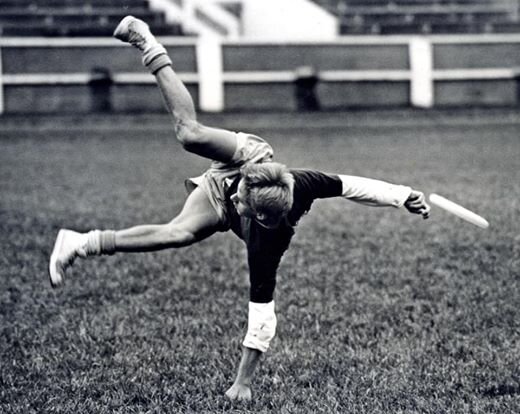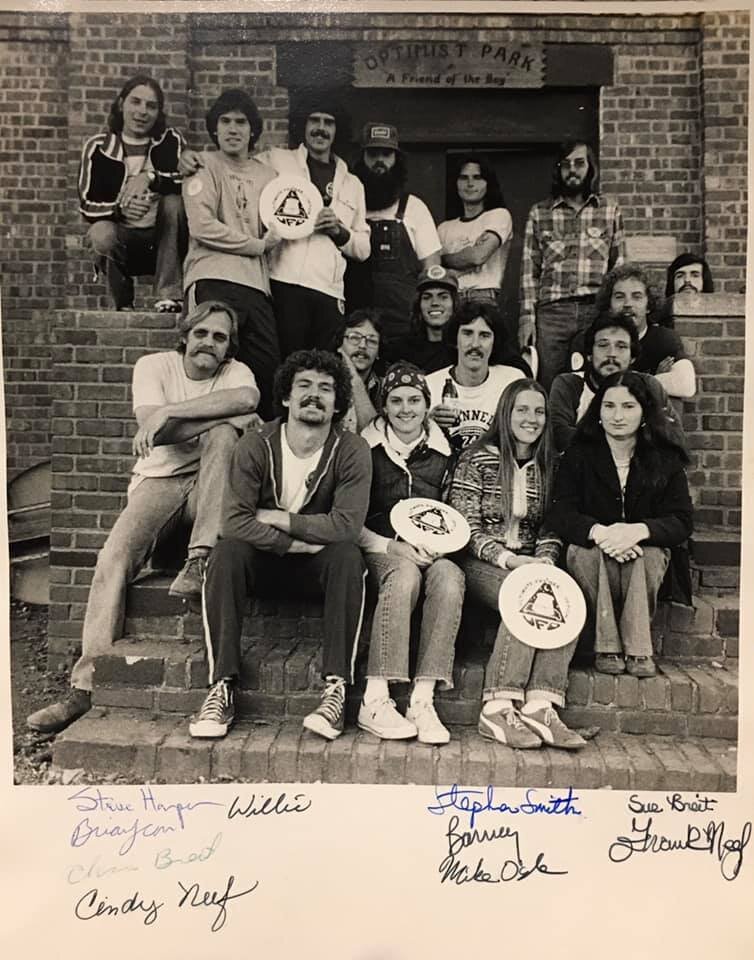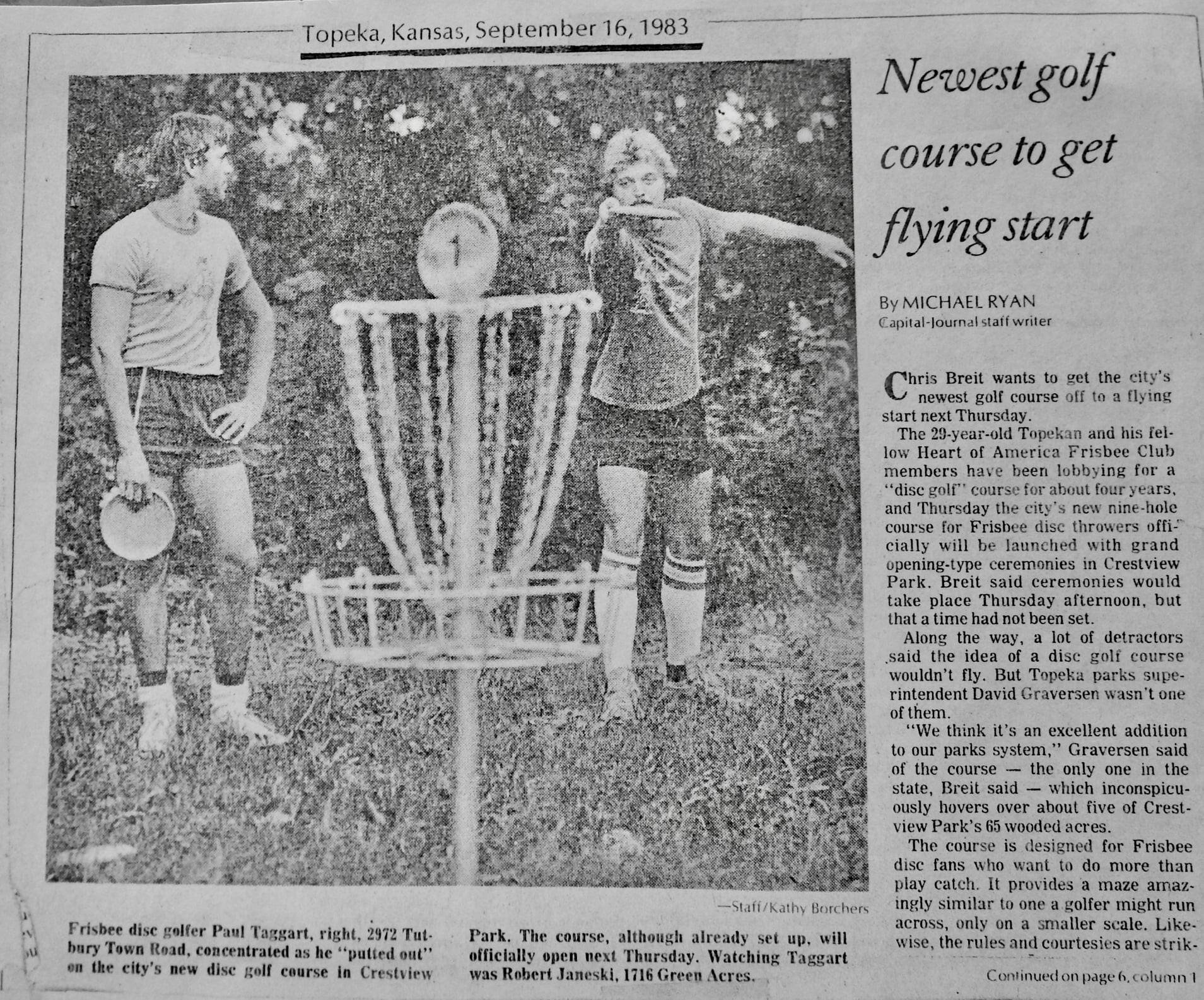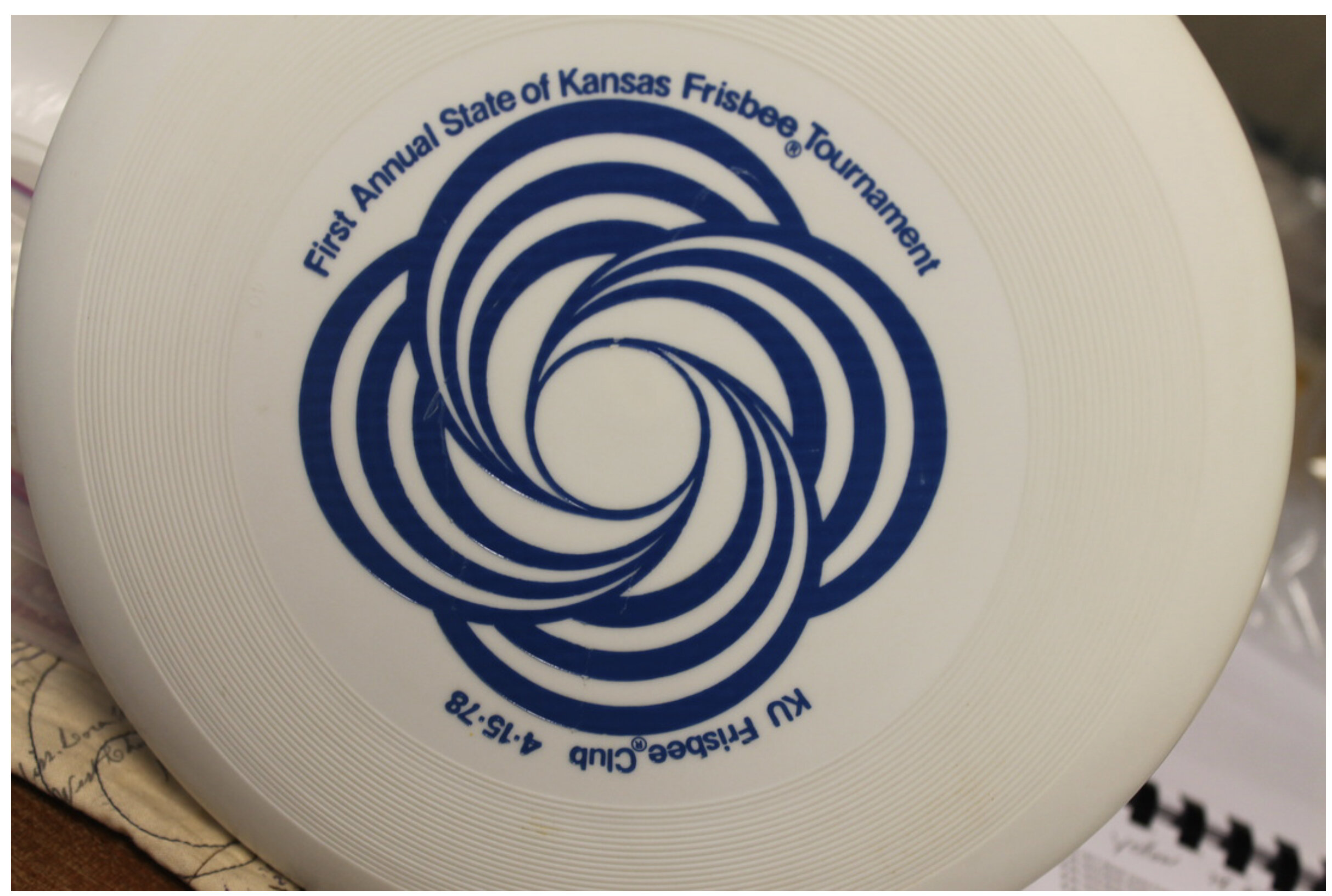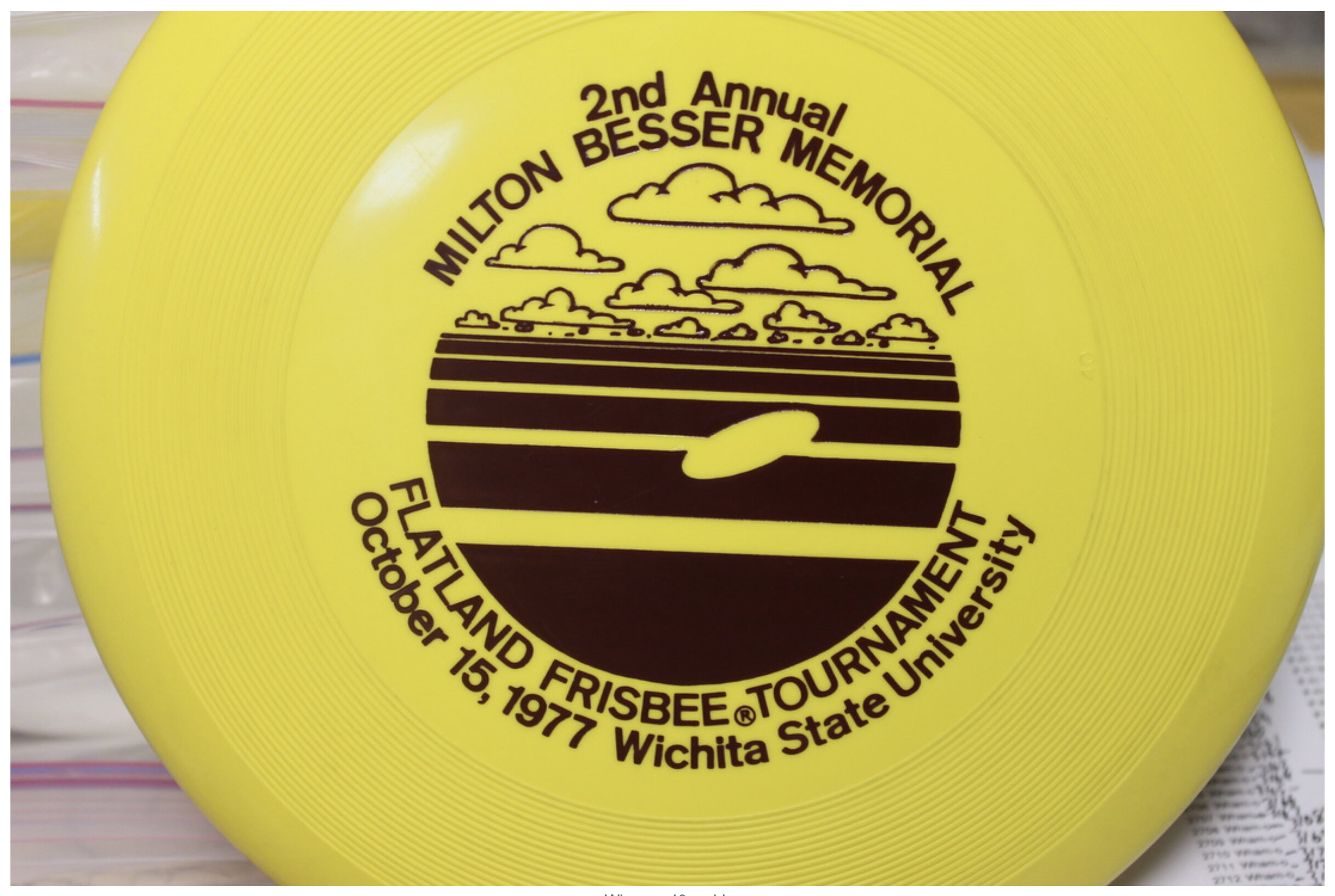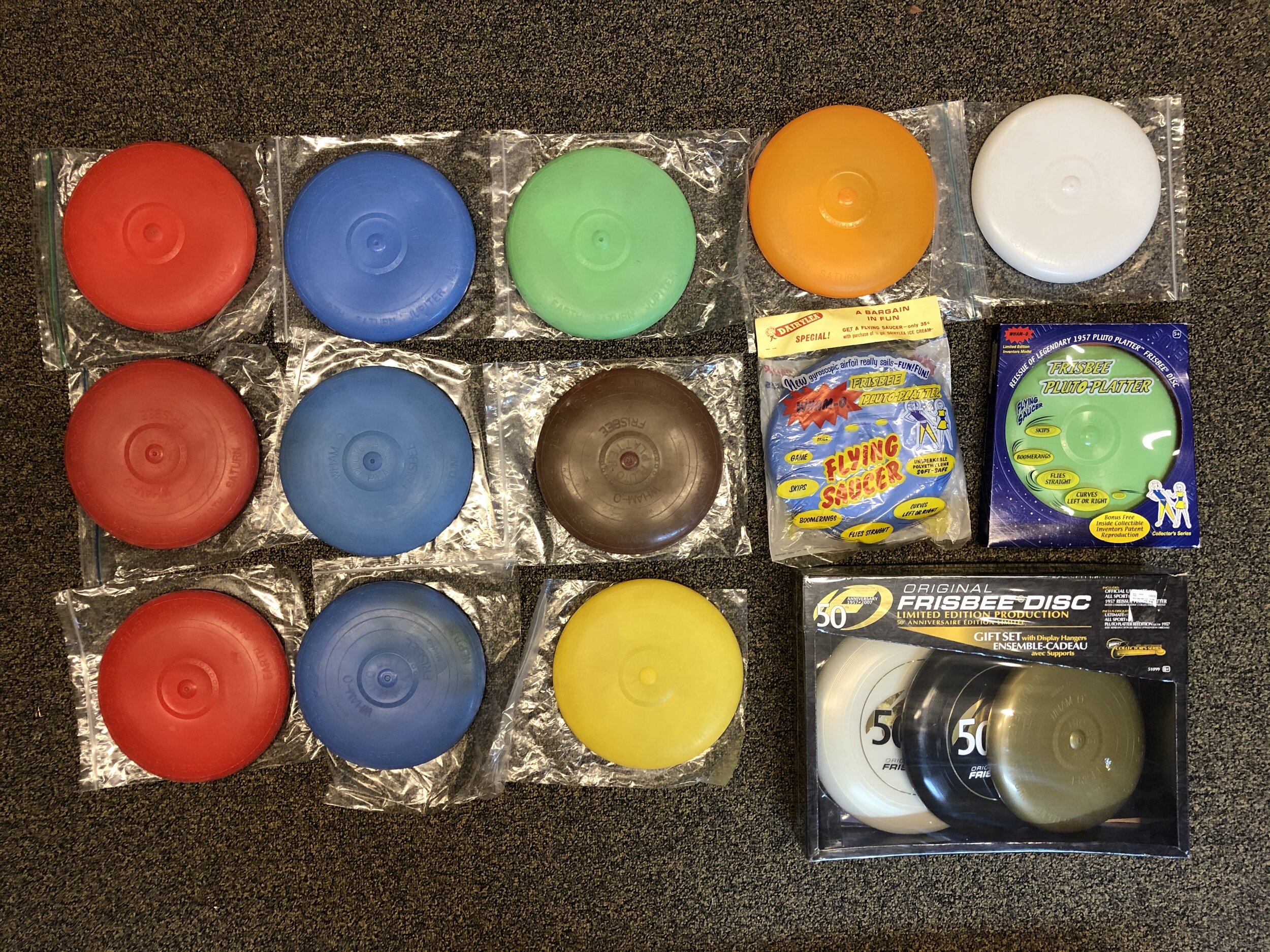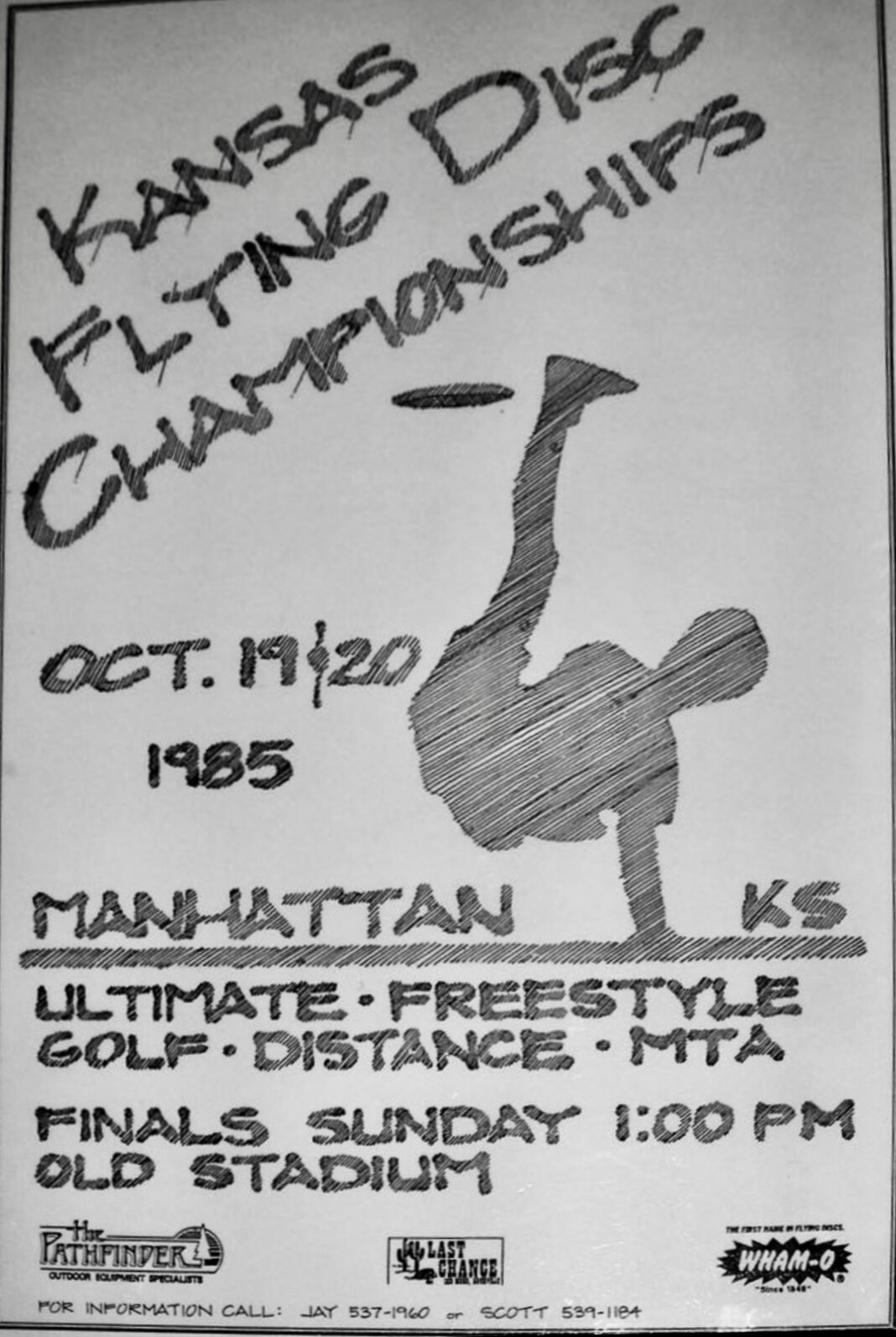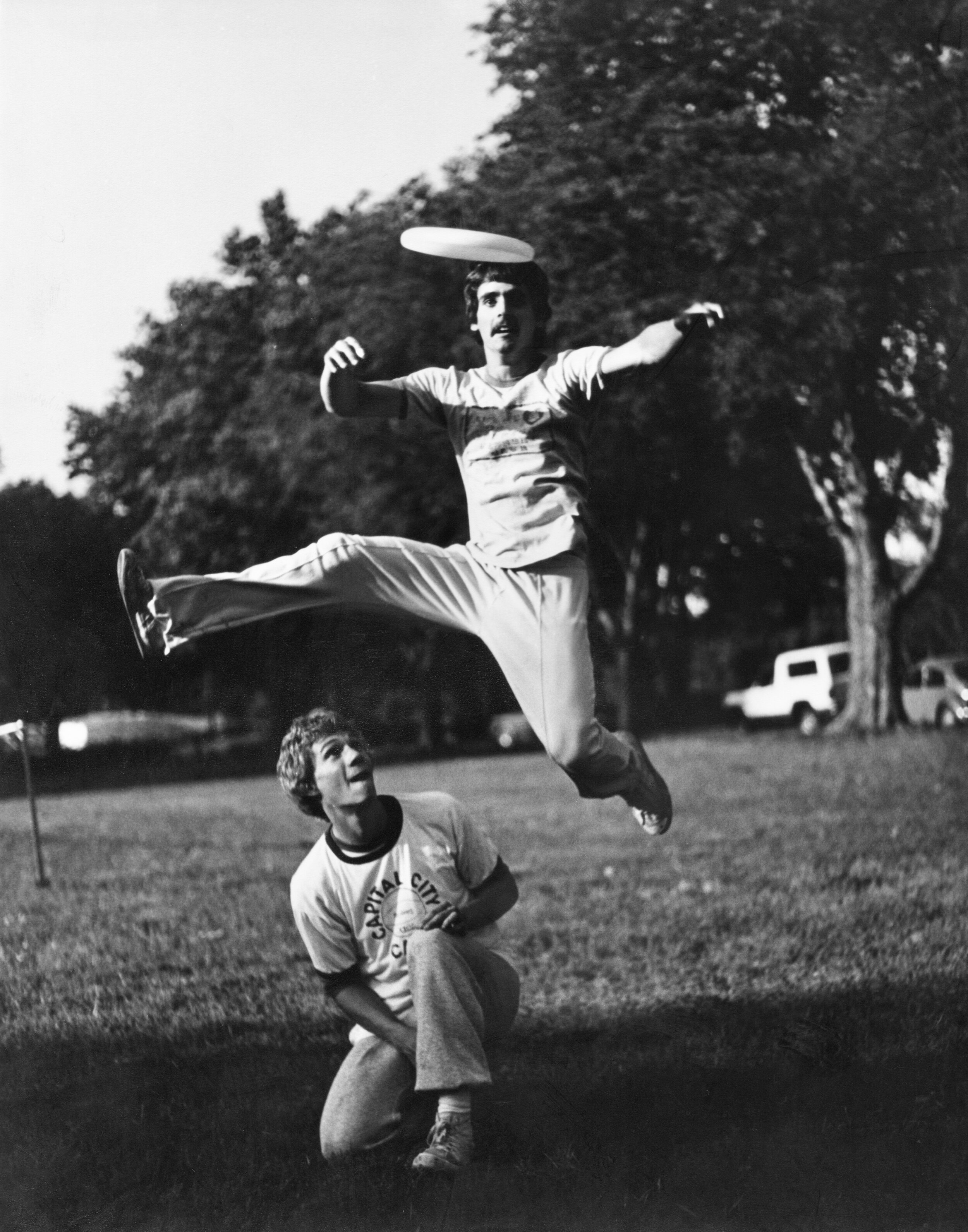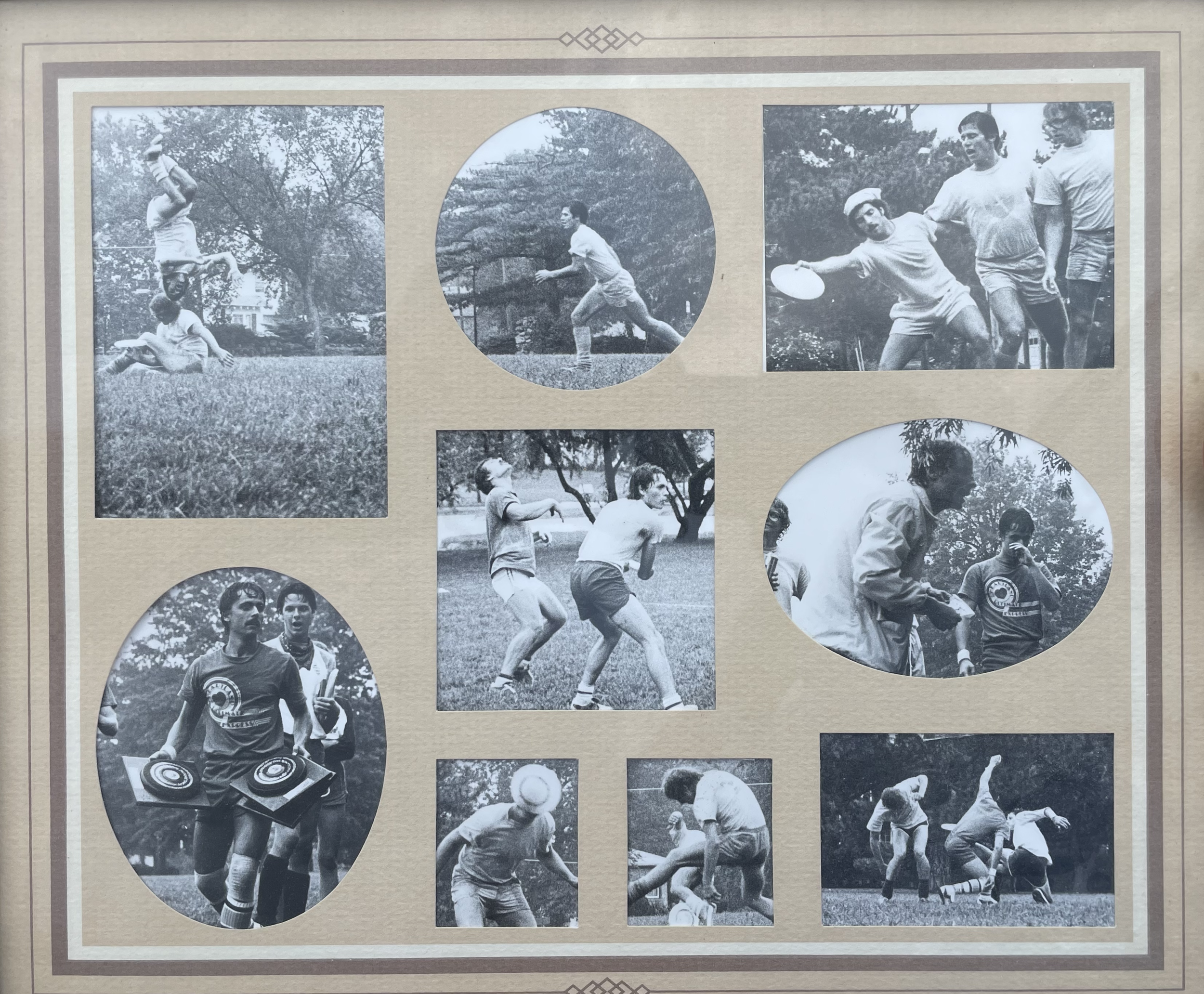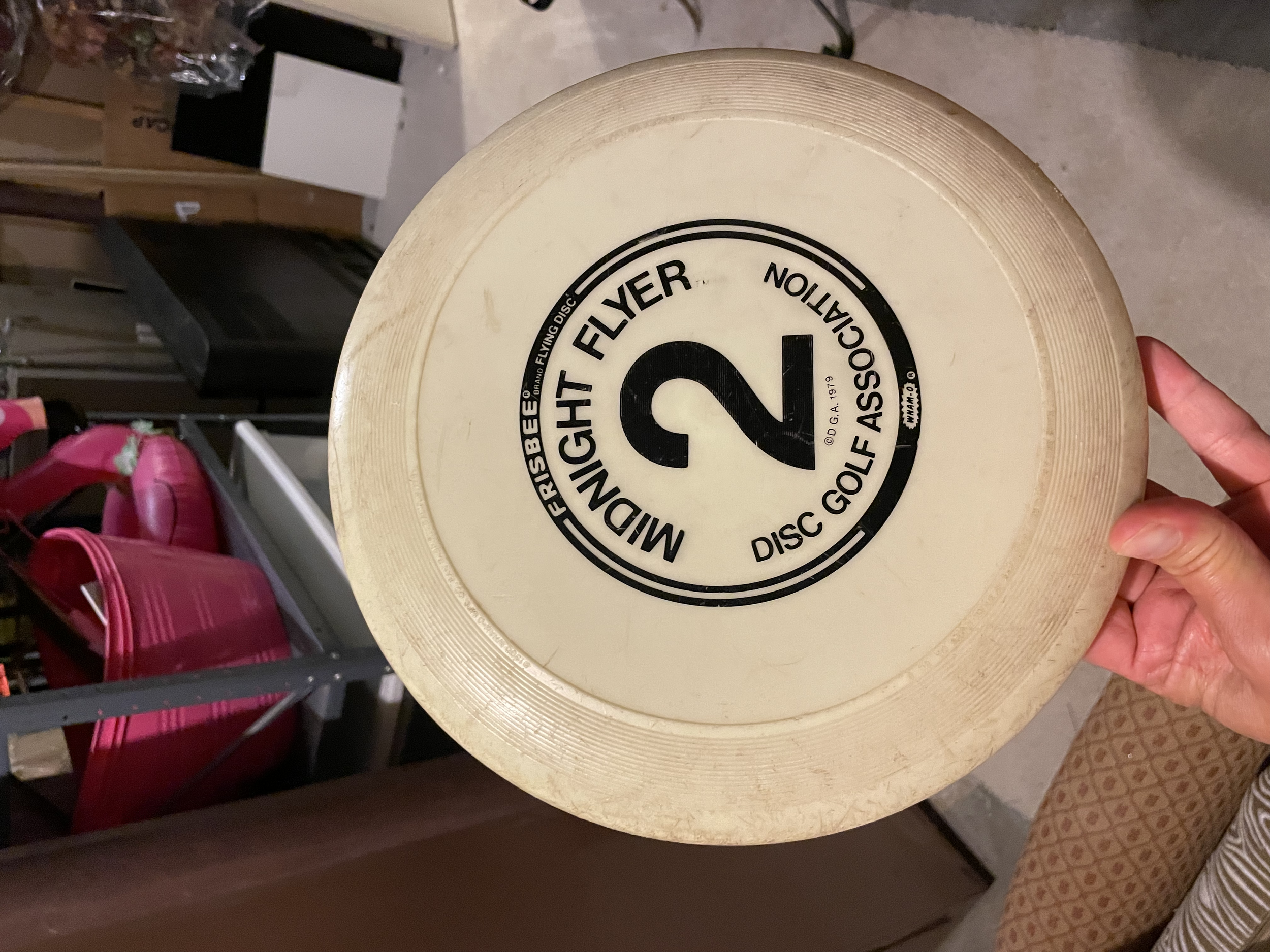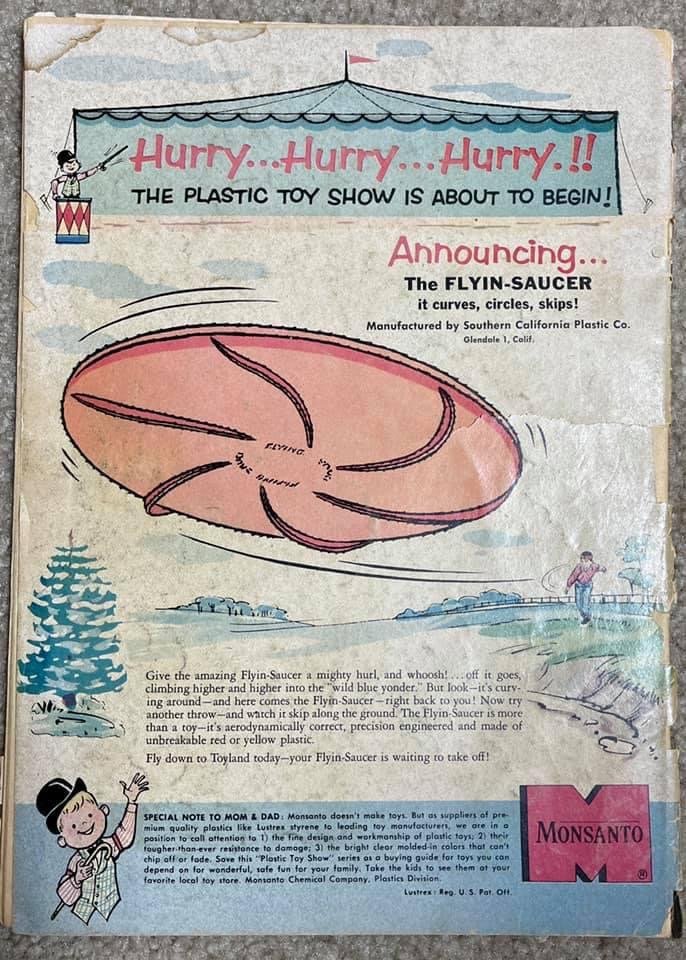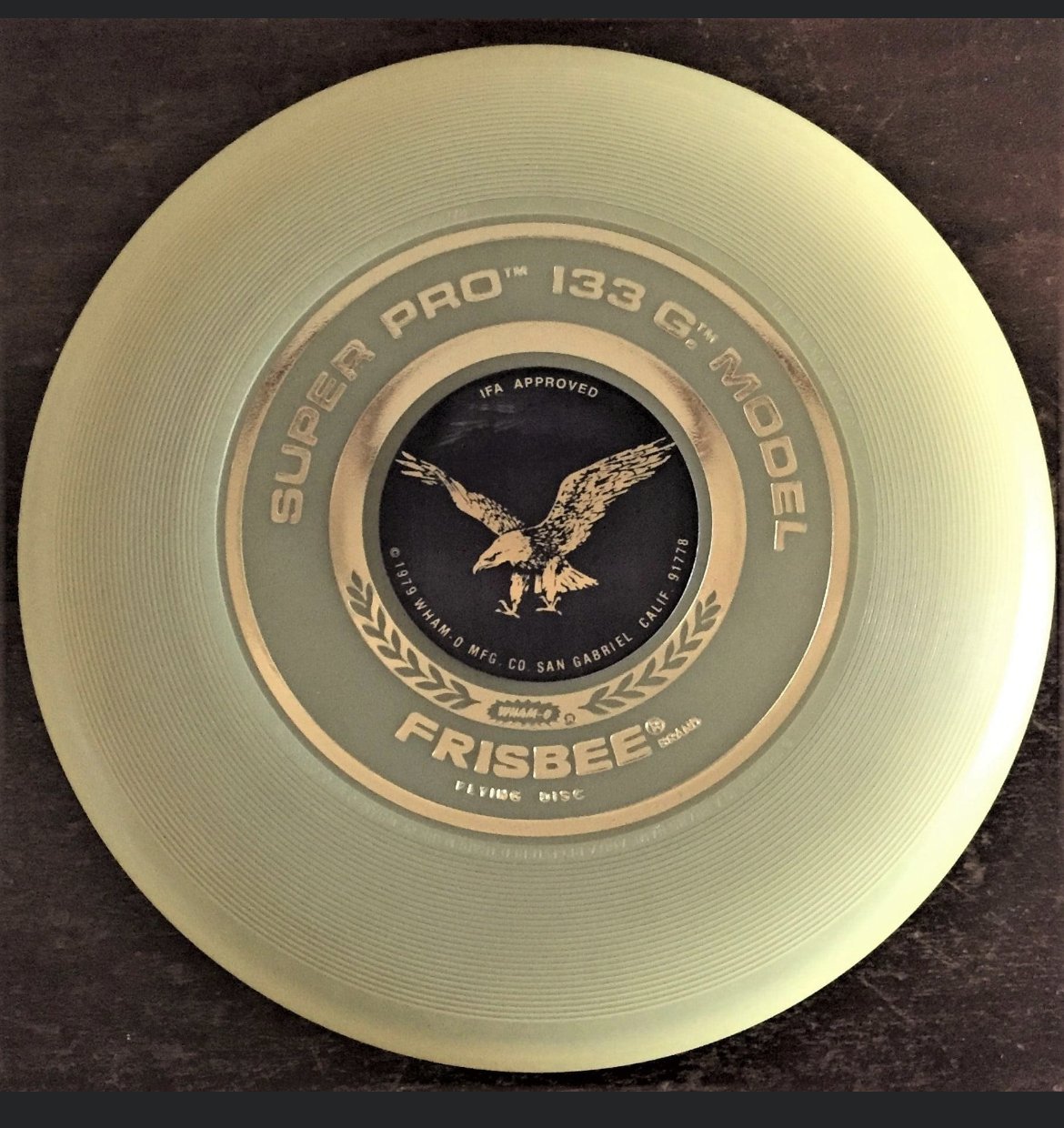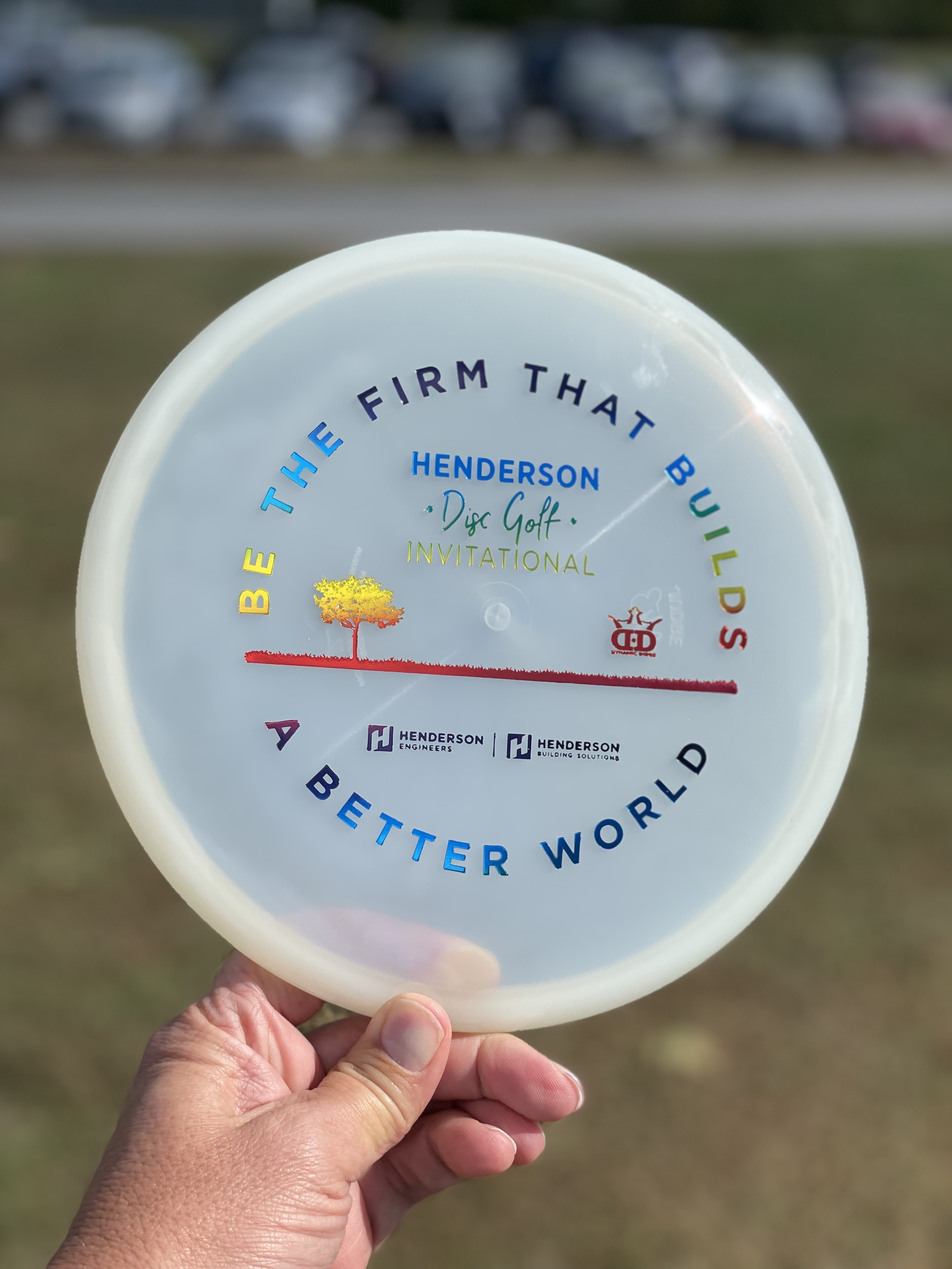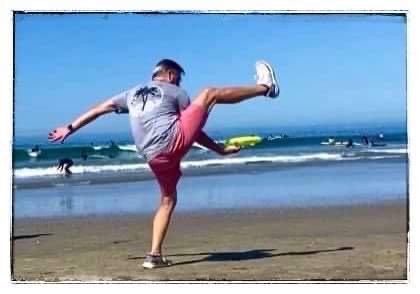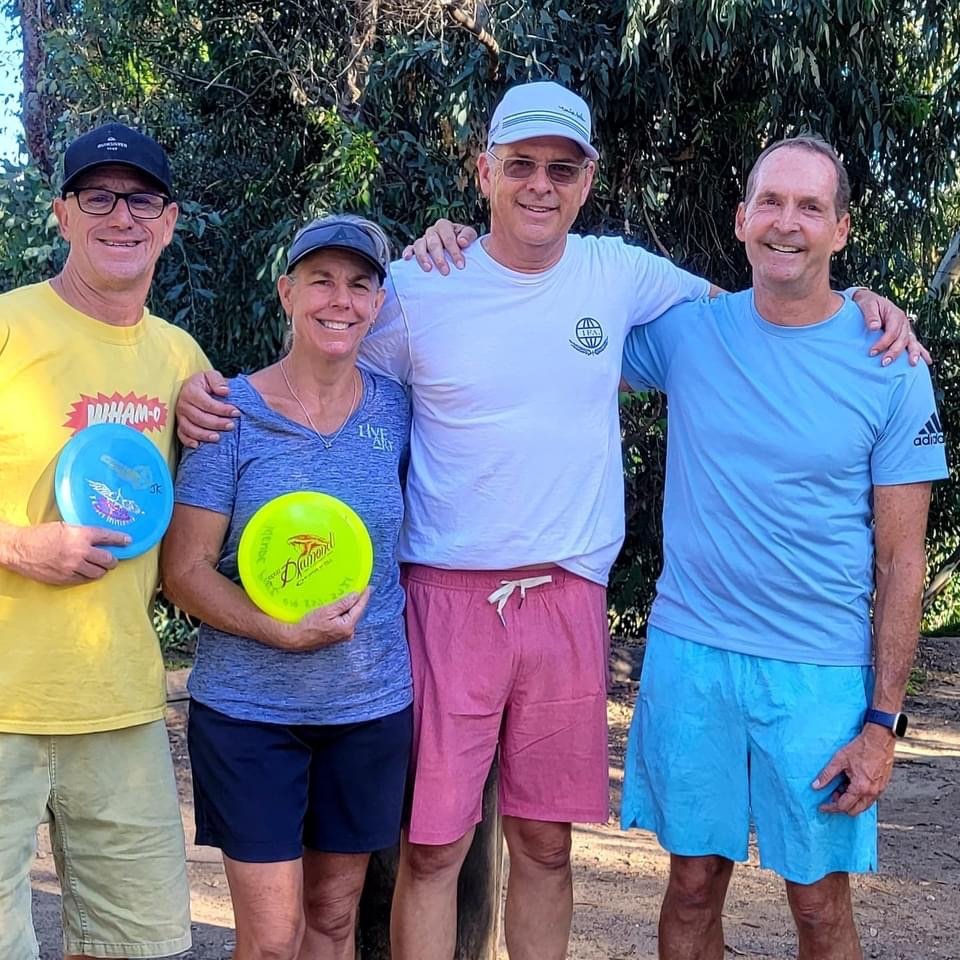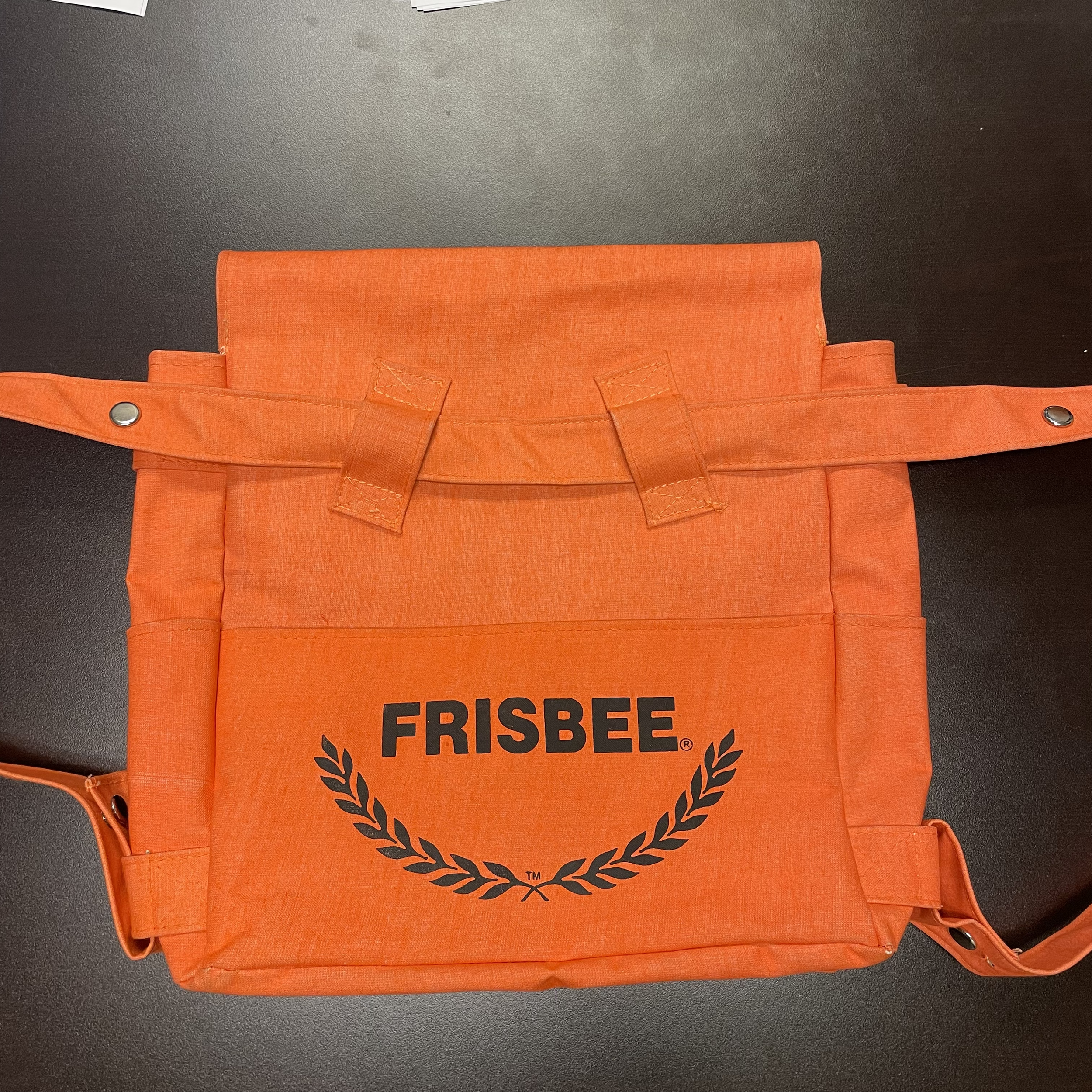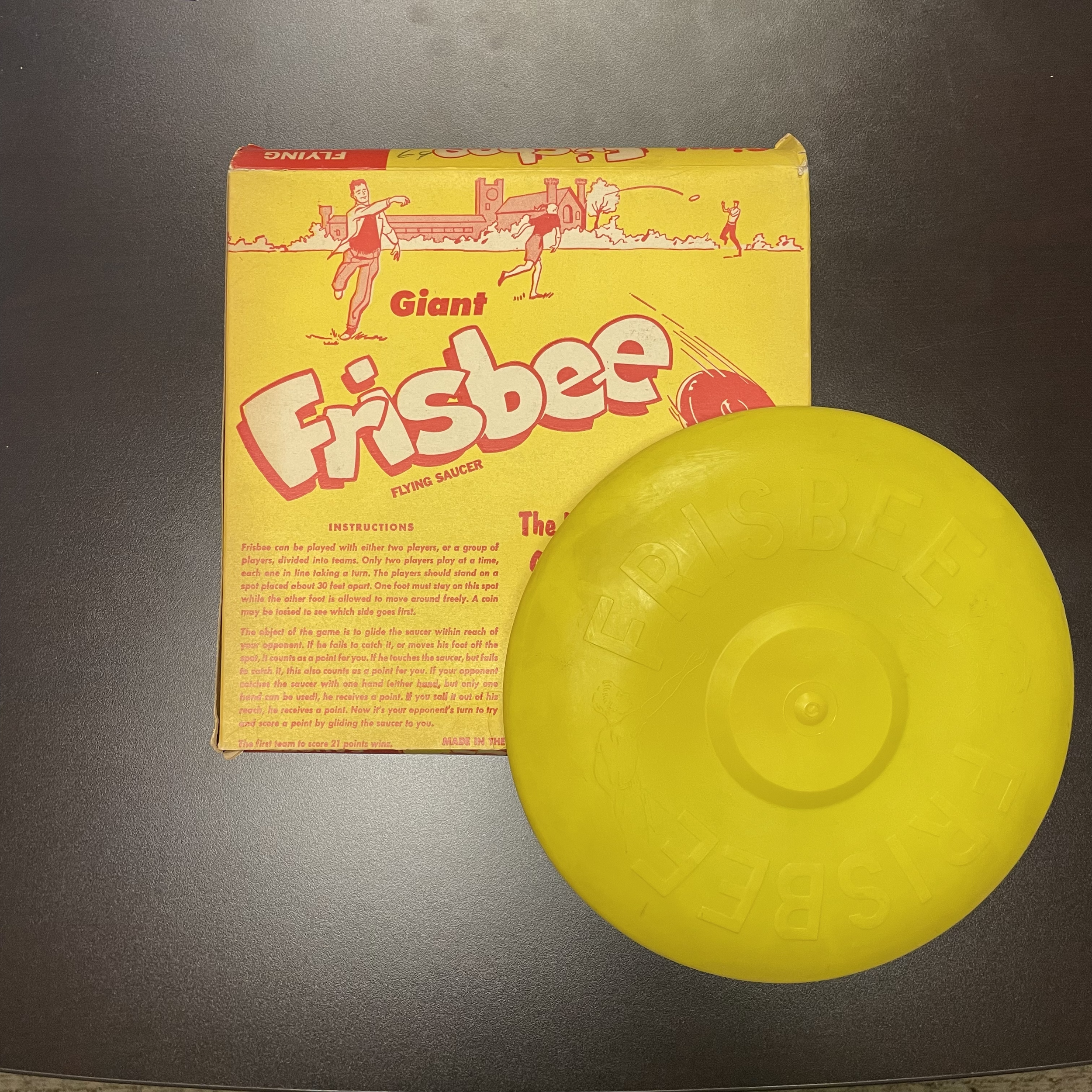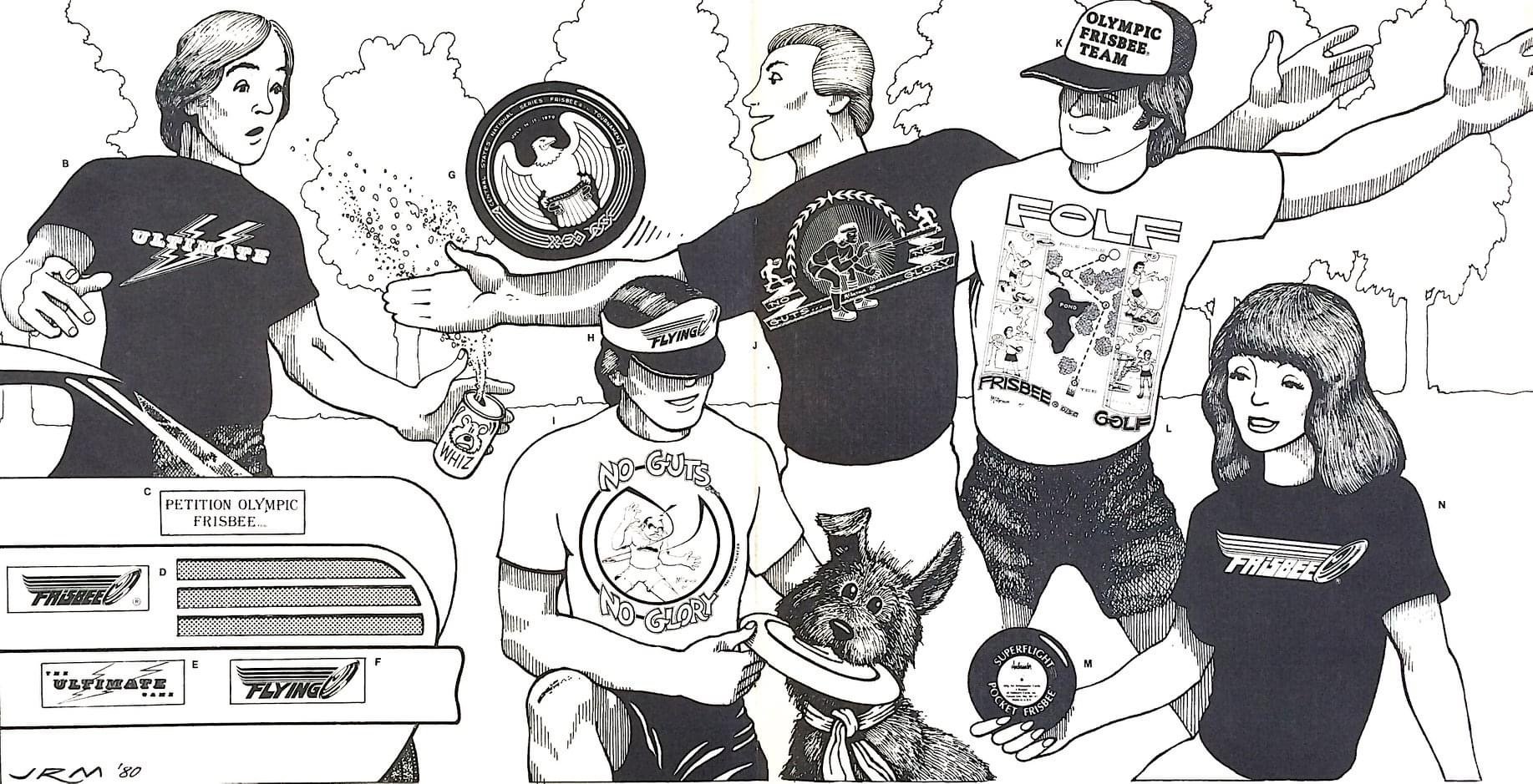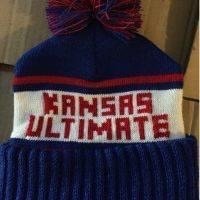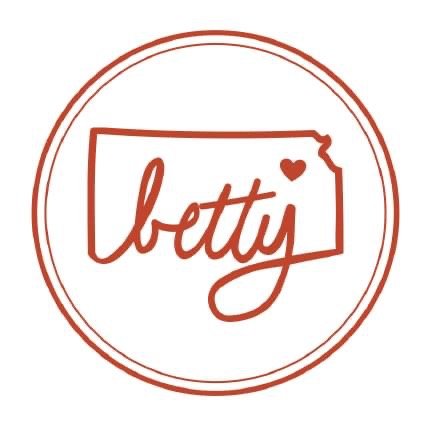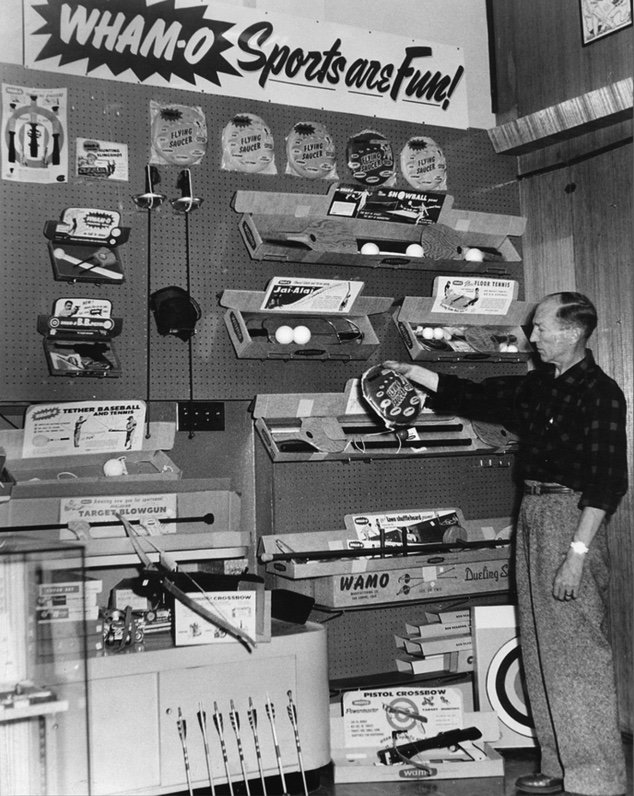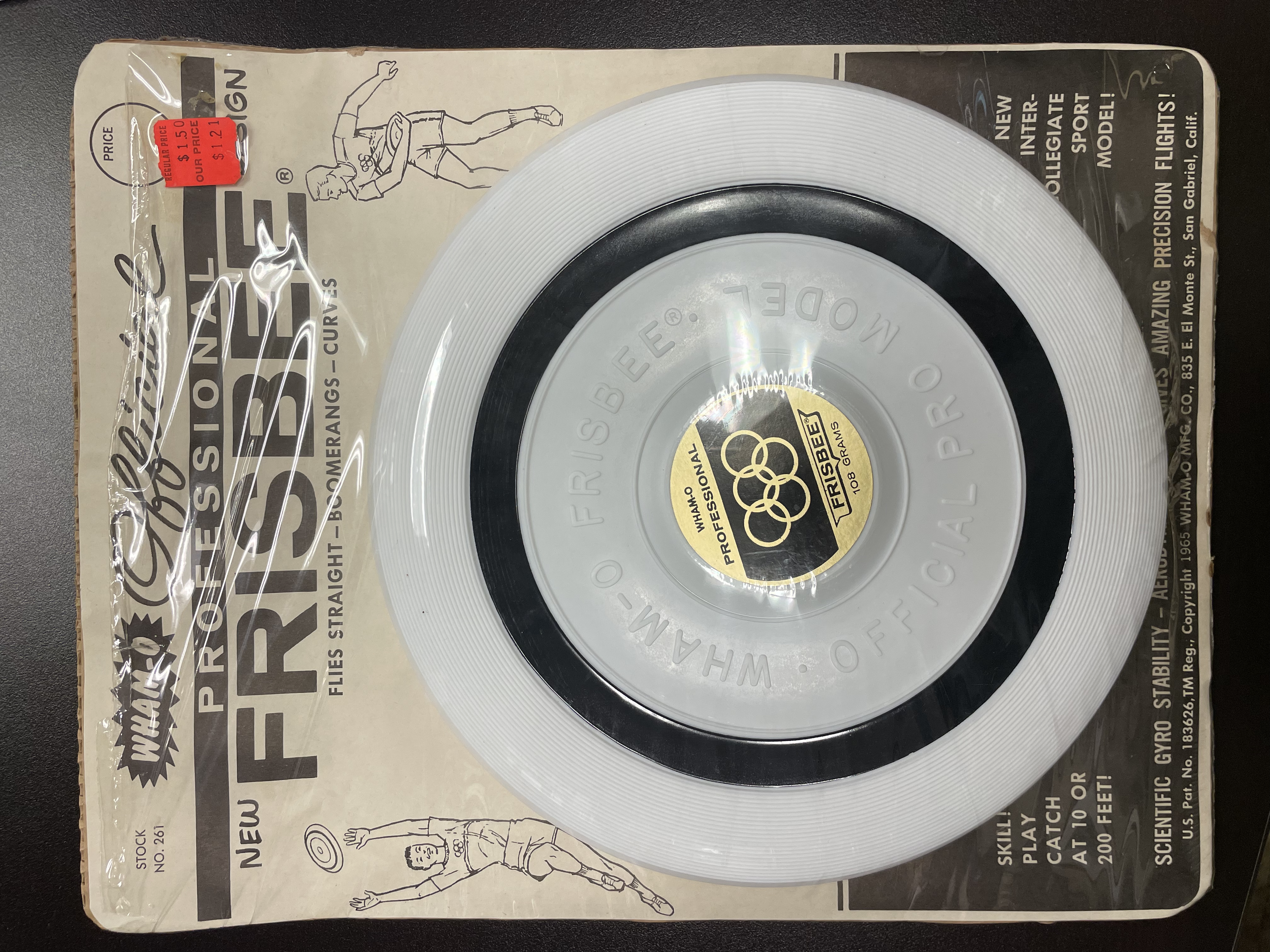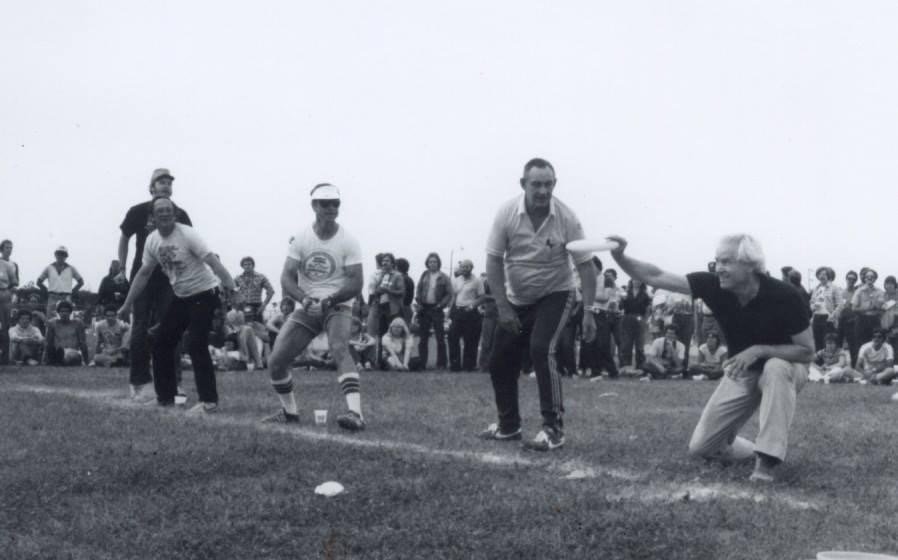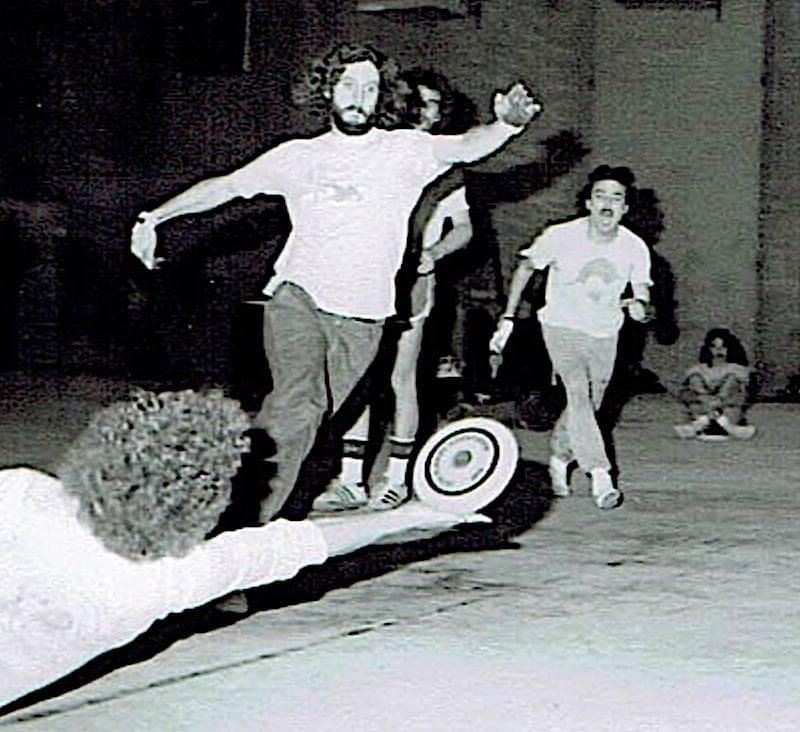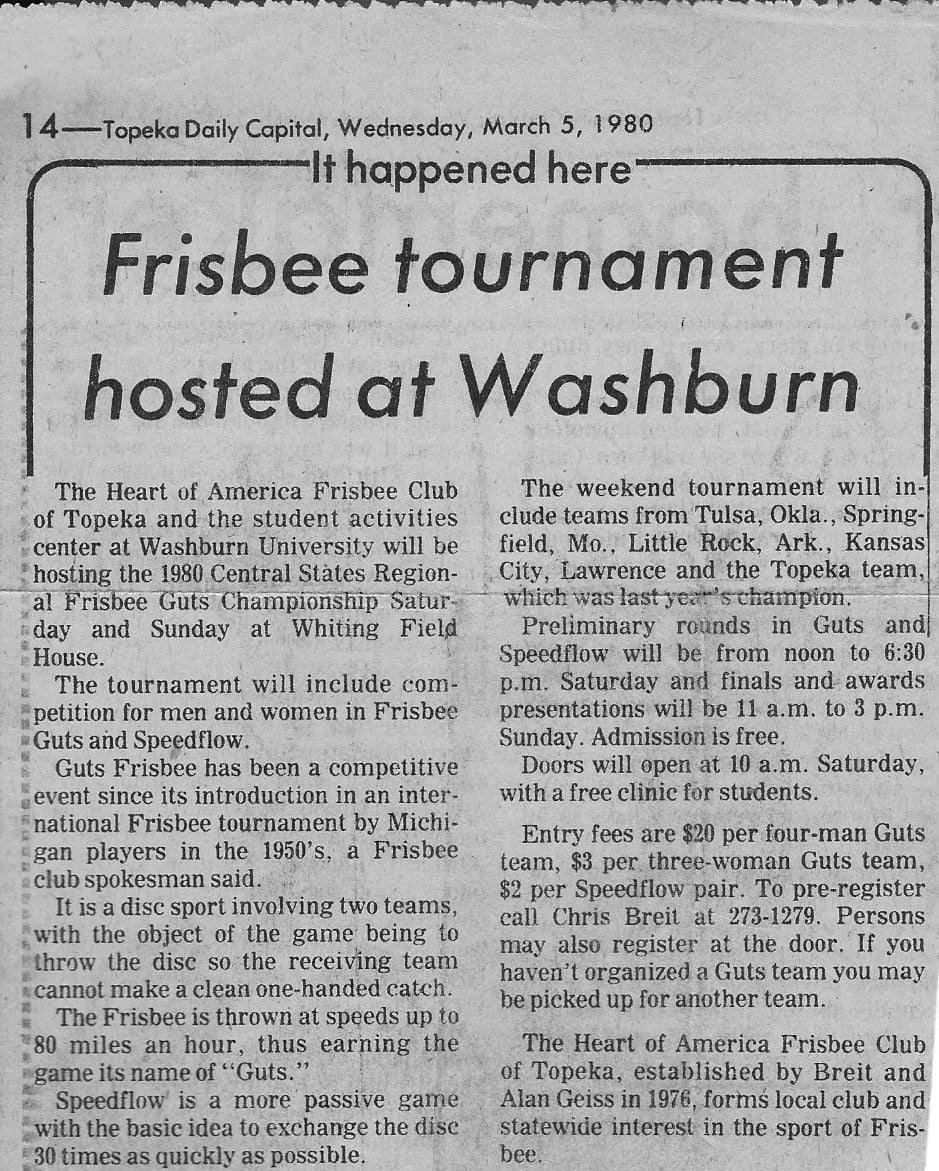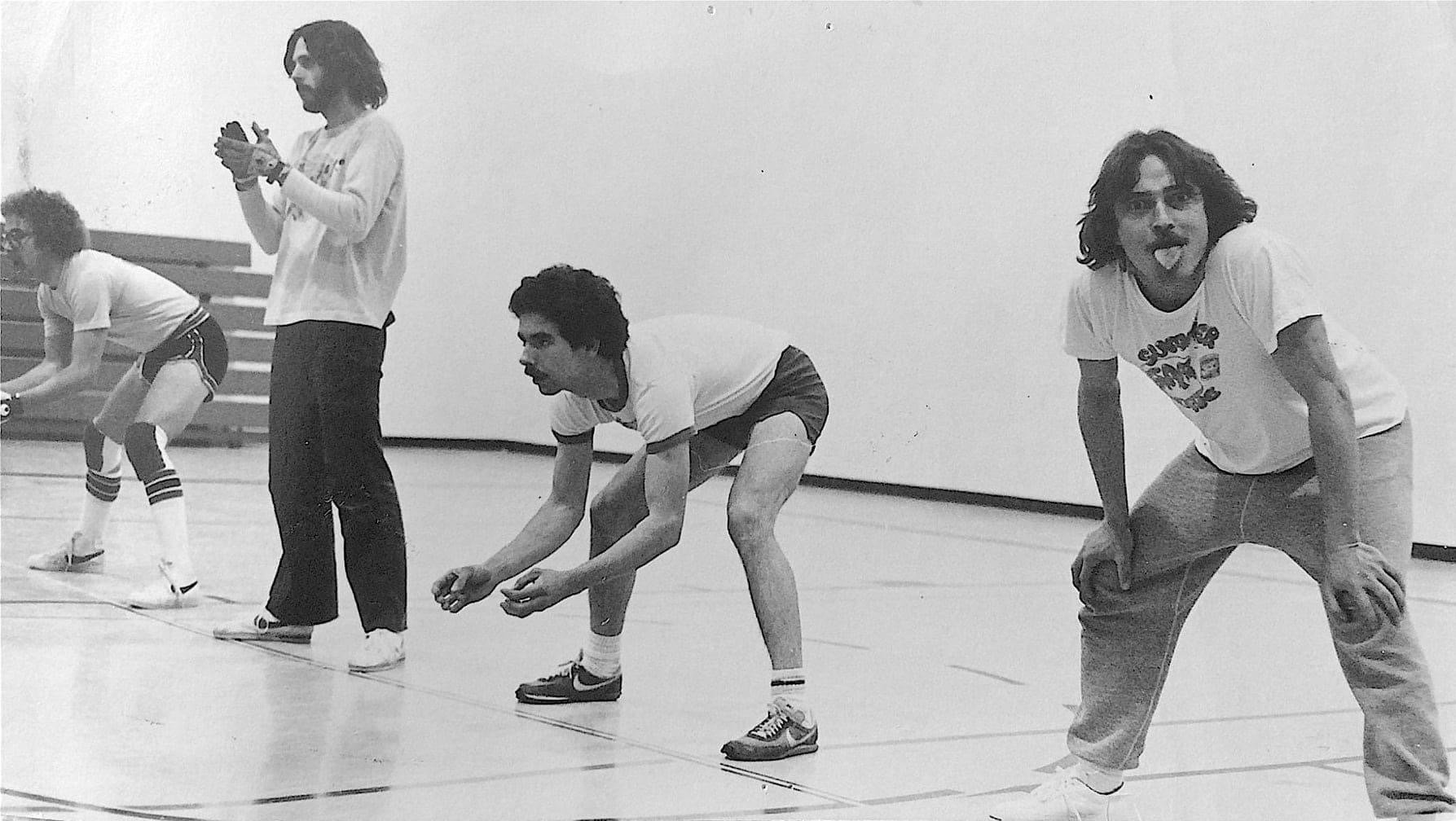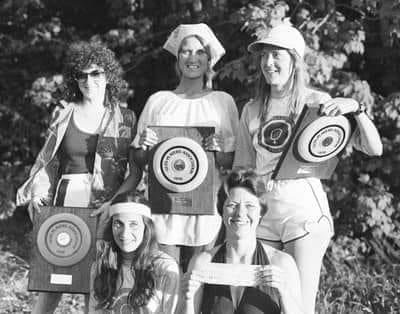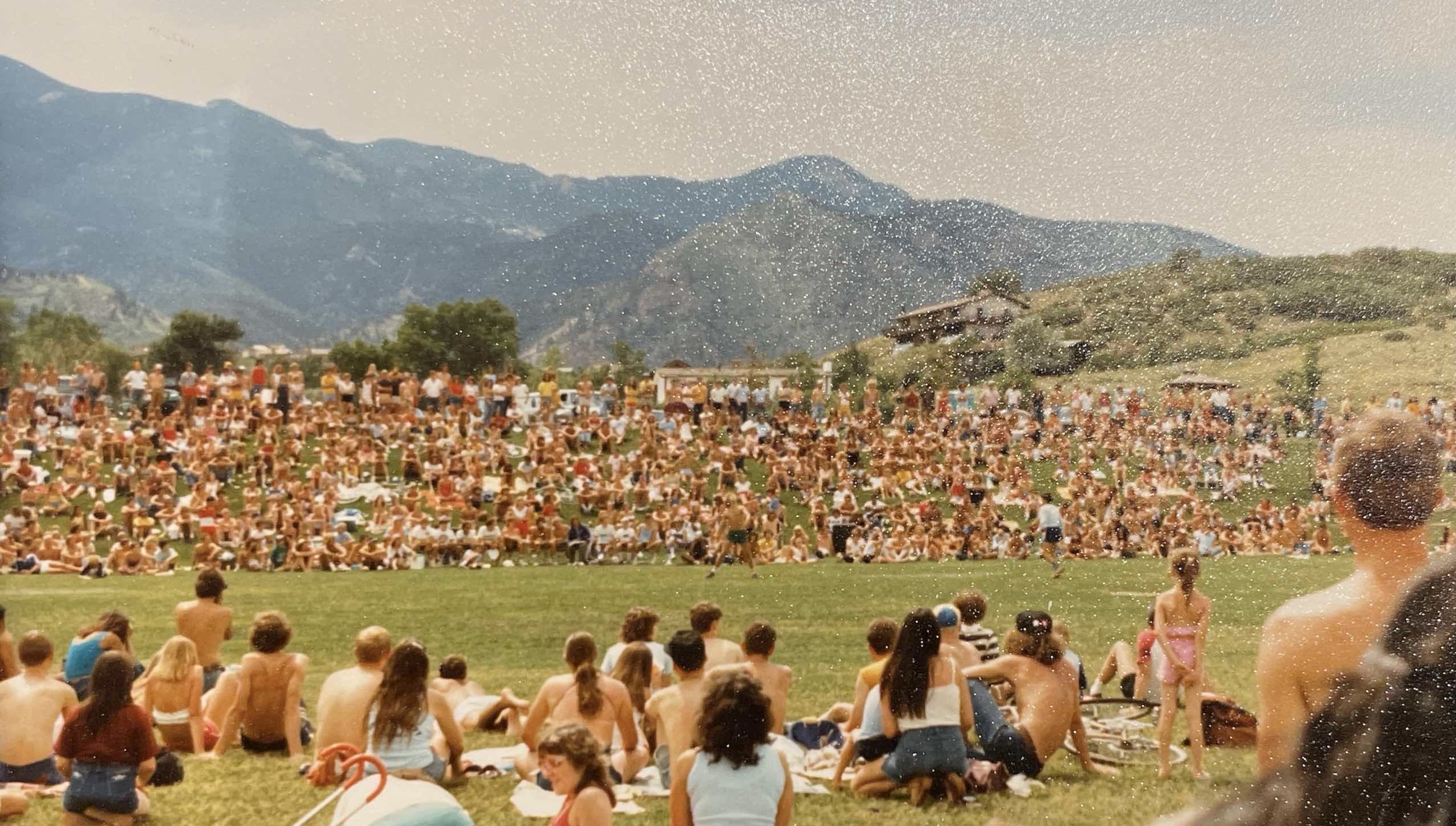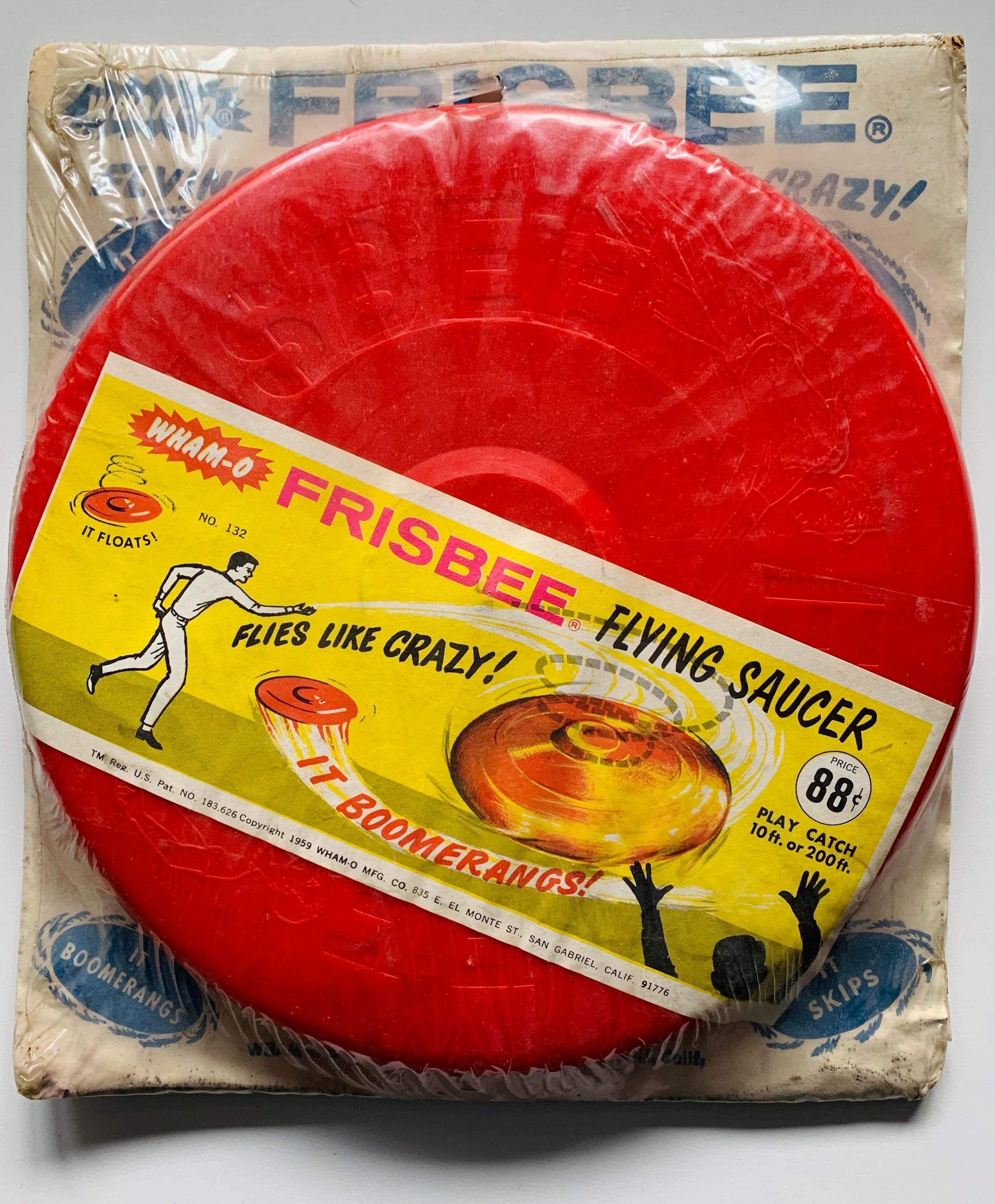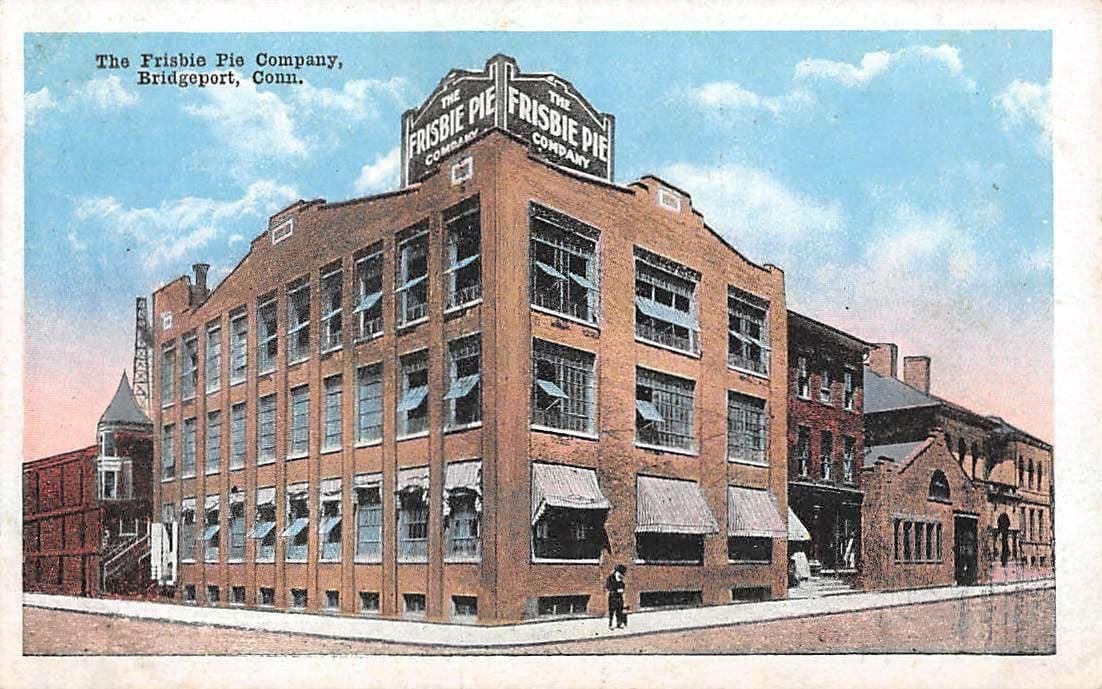CITIES AND CLUBS OF KANSAS
Beginning History in the State of Kansas:
The history of our sport undoubtedly started in the front yards, parks and playgrounds in and around the state of Kansas. It was the Baby Boomer generation and kids were mesmerized by space travel and UFO's and they found themselves playing catch with Pluto Platters or Flying Saucers, the early versions of the Wham-o Frisbee. The time period was the late 1950's and the early 1960's. and playing catch quickly escalated to games of keep away, boomerang or target golf with a tree or a lamppost. And why not, written on the back of each Frisbee were the words "Invent Games!" And somewhere along the way, somebody said, "I bet I can catch that Frisbee behind my back!"
In the 1970’s, the sport took off in Kansas, fueled by the organization of Wham-o, the work of Ed Headrick and the passionate efforts of many across the state. Below is chronicled the history of our sport in the top areas of the state where Frisbee really took hold. Many of these areas centered around Universities and colleges were the sport had a strong cultural connection with college students.
KANSAS CITY
The Kansas City Frisbee disc Club was founded by Tom Ingle, Director of the club, on October 1, 1977. The KCFC was one of the fastest growing clubs in the Central States Region and one of the largest Frisbee disc clubs in the nation during it's heyday. The club boasted 90 members with a mailing list of around 350 people.
The KCFC provided Kansas City with organized flying disc fun. They coordinated activities ranging from weekly club competition, that has an average attendance of 40 people, to regional tournaments. Gillham Park was the epicenter of the action and the club met every Sunday afternoon there at 4:00 pm.
The club directed the KBEQ/Coppertone Frisbee disc Fly-In for the several years (with the famous Gary Perlberg as a star player with Coppertone) as well as the end of the summer Flingin Fun Picnic and or more notable America's first National Indoor Frisbee disc Golf Classic in 1979. The club also coordinated the first North American Series Frisbee Tournament in the Central States Region.
Tom Ingle also developed one of the first pay to play disc golf courses with the Folf course at Swope Park complete with a pro shop, patio, merchandise and lessons. Many past and current stars of the sport roamed the famous fairways at Swope.
The club also coordinated several Freestyle Players Association events with the most notable being the Midwest National Championships in 1982 at the Volker Park Fountains. The top freestylers in the world descended on the Country Club Plaza.
The club has evolved today into the Kansas City Disc Golf club and over the years and organized and inspired thousands of players into flying disc sports.
LAWRENCE, KS
The Kansas University Frisbee Disc Club started in Lawrence in fall of 1977 by Wayne Gaul and Eric Frank. With the help of World Record Holder Bill Gordon, they got the disc rolling with weekly jam sessions, proficiency tests and a beautiful Frisbee golf course on Campus. Who can forget the #1 tee shot from the Campanile down the hill towards Memorial Stadium!
On April 15th, 1978, the KU Club Sponsored the Kansas State Frisbee Tournament. This was soon followed by other competitive events that kept the members busy during those early years.
When the newly formed Central States Region became a reality, Bill Gordon and Wayne Gaul sponsored the first Central States Frisbee Golf Championships. It was a big success in which players from four states were in attendance.
The club and Bill Gordon in particular had a hand in the second Pole Hole course in the State of Kansas; one that was designed by Ed Headrick himself and installed at Perry Lake in 1980. Bill Gordon was the course professional.
The club's big mark on the sport was the creation of the Horrorzontals Ultimate team in the late 1970's. This is the longest standing single branded Frisbee team in the state of Kansas and still exists to this day. Many a college student left KU with a better education because of their involvement with the Zontals, Fools Fest (the annual Ultimate tournament that draws teams from all over the country) and the infamous Saturday night FF party. It is the 13th longest running Frisbee tournament of any type in the world!
PITTSBURG, KS
The Pittsburg Frisbee scene took off in 1975 by a group of enthusiasts that brought the love of Frisbee play to Pittsburg State University from their individual home towns. It can only be guessed that students played with these plastic toys on campus prior to that but it was this group that first got it organized. Two of these, Jeff Priest from Winfield and Ted Smethers from Olathe, organized the first recognized Frisbee Club by the University in 1977. Its official name was the Pittsburg Frisbee Club but over the ensuing years, the players within the club called their “team of players” many unofficial names.
Team Names at Pittsburg State
During the first two years, 1977 and ’78, they were known as the Frisbee Freaks. On the breast of their Ultimate team’s shirts was the letters PFC, not for their rank in the organization but for the obvious: Pittsburg Frisbee Club. On the back of the shirt was Frisbee Freaks with a space between the words for a jersey number. But these players were highly intelligent Frisbee Freaks so players had unusual jersey numbers: Pi, the speed of light and other mathematical and physic related numbers. (When I joined the team in 1978, the only number I could come up with that wasn’t already taken was an 8 lying on its side. Depending on your point of view, it was either Lazy 8 or Infinity.)
In January of 1979, the team name changed to the Cow Creek Chip Flippers. When Ted stepped down from the leadership, Joe Hedges and Bill Paulson stepped in to fill the void which turned out to be fortunate as Jeff would leave in May. With the only county in the state of Kansas without a waterway big enough to be called a river, it seemed fitting to honor the largest waterway flowing south of the city: Cow Creek. And with Cow in the name, it was obvious that a cow chip should be included.
In 1981, the team once again changed names to the Centrifical Force. When it was pointed out that the name was spelled wrong, they claimed it was on purpose, thinking it funny for educated people to wear it and to see how many (or few) people even realized it was wrong. (While I left town in 1983, I still returned at least once a year or more for business reasons and to see friends. By that time, I had no interest if the college had an Ultimate team or played disc golf on campus. I could still get together with my friends and play at a private disc golf course southwest of town so I lost contact with what continued on campus.)
Tournaments in Pittsburg
The Pittsburg Frisbee Club attended the first three UFO (Ultimate Frisbee Option) Tournaments in the fall of 1978, ‘79 & ’80 held in Springfield, Missouri; the first year as the Frisbee Freaks and then as the Cow Creek Chip Flippers the next two. The first year, the team took a keg of beer in Ted’s trunk to the tournament for the Saturday Night Party. While the team went with no wins on the field, it was obvious on Sunday that they had won the party.
In May of 1978, The Frisbee Freaks hosted what was called “The First Annual Pittsburg Frisbee Disc Open”. The events contested were Distance, Accuracy, MTA (Maximum Time Aloft) and TRC (Throw, Run and Catch). The following May in 1979, after someone pointed out that the first of anything should not have “annual” in the name regardless of good intentions, the tournament was called “The Second First Annual Pittsburg Frisbee Disc Open”. At this event, they offered Folf, MTA and Freestyle.
There was a second name for the second tournament as well: “Uncle Peabody’s Down Home Chip Flingin’ Contest”. As the story goes, the mythical Uncle Peabody had such a long nose that he could do a nose delay while free-styling. For a job, he was a Rat Rancher and provided Rat skins that were attached to boards for the homemade trophies. Also, all references to a Frisbee were called a chip instead of a Frisbee.
At the Saturday night party and Bar-B-Q, players hung around until the wee hours of the night. Of particular note was the group that congregated on the front porch. These Free-stylers were playing a game of “Add-On”. They would spin the disc to themselves and perform a free-style move. The next person then would repeat the previous person’s moves and add a trick to the routine. (That was the first time I saw Crazy John’s famous Tooth Delay. It was just unfortunate that Uncle Peabody couldn’t be there.)
In the fall of 1979, The CCCF threw the Indoor Fall Frisbee Festival with Guts on Saturday and Double Disc Court on Sunday. Entry fees were $2 per person for each event so $10 for a Guts team and $4 for the DDC team.
The Ultimate teams hosted many small one day scrimmages against teams from Wichita, Winfield and Manhattan and put on a half time show against Springfield at a Saturday afternoon football game. The team also went to the Topeka Sport Fest in May of 80 or 81.
Players individually or as small groups also attended regional events other than Ultimate:
• The Mid American Frisbee Fanatics Tournament in Springfield, Mo in 1977. Jeff Priest took 2nd place in disc golf.
• Members participated in the First Annual State of Kansas Frisbee Tournament in May 1978 held in Lawrence.
• 1979 World Indoor Folf Tournament (also known as the Cabin Fever Classic) in Kansas City that also contested Guts and Nail delay. Jeff Priest took 3rd in the nail delay.
• The Second Annual Oklahoma State Championships in 1979 that had Disc Golf with actual baskets, Round 9 putting and other field events. Joe Hedges actually qualified for the finals in one of the field events but sadly didn’t show up in time to compete as he was a last minute addition and didn’t know he had made it.
• The National Series Meet held in Kansas City in 1979. The baskets for that event were made from chicken wire, about 3 feet in diameter by 1 foot tall, staked to the ground.
• The University Student Union held a disc golf tournament on campus in 1980. Bill Paulson took 1st.
• Jeff Priest and Joe Hedges gave Free-style demos on campus at regular intervals.
Disc Golf Courses in Pittsburg
There have been many disc golf courses in Pittsburg. The first three were 9-hole object courses. The first was around the college lake and President’s home next to the Ultimate practice field and was used as the front 9 at the May 1979 tournament. The back 9 was played on the main campus course.
The third 9-hole object course was in town at Lakeside Park. This was located in the middle of a nice residential area. Also in the middle of this residential area was PICCO (Pittsburg Ice Cream Company) that sold fantastic ice cream, root beer floats and cherry limeades to cool off after a hot round.
In 1981, the Centrifical Force had an 18-hole object course on the main campus as the new President’s wife didn’t want Frisbees anywhere near her home. (They played at least one tournament on this layout but it was quite easy as I shot a 15 down for the win.)
(While I lived in Pittsburg, my friends and I would go to every park in town and pick a target to throw at for something new to play besides the three normal courses. That was what was so nice about object golf and playing with a Frisbee and not today’s golf disc. One could play anywhere and not create any damage like today’s golf discs would. I know that when I left in 1983, that disc golf did not die in Pittsburg because I attended a tournament in the mid 80’s on a temporary object course set up in Lincoln Park. The two kids running it thought they had a pretty good course and an even better chance of winning. After I shot a 17 down to take the win, it was obvious they were beginners.)
In the early 90’s, a private course in Cherokee, Kansas southwest of Pittsburg opened and stayed open well into the 2000’s before it was shuttered. While there were two different groups of regulars, one young and one old, anyone was invited on their regular club nights.
While players, myself included, tried to convince the city over the years to put in a disc golf course with baskets, it wasn’t until the late 90’s that Larry Shanks and Ann Major donated 9 baskets that were installed in a small unused corner (SW) of the giant, heavily used Lincoln Park located along the western by-pass to the city. It had ball fields, swimming pool, amphitheater, Kiddie rides with a train and roller coaster and the very poplar Horseshoe and Bocce courts.
In 2009, Kevin Elrod convinced the city to install a more professional 18-hole course in Schlanger Park east of downtown. They hosted the Pitt Open in April of 2010. In 2011 or 12, the Pitt Open also used a “killer” temporary course set up over the entire large Lincoln Park in addition to the course at Schlanger. Russ Burns with Disc Golf Monkey out of Springfield, Missouri lent a hand in the course layouts and as tournament TD those first years.
TOPEKA, KS
It all started innocently enough; ball field lights left on after a late night softball game, two guys that were adept at the sport of Frisbee, and a group of future Topeka Frisbee stars looking on. The softball players were in awe of Chris Breit and Bill Gordon and what they were doing under the lights with a Frisbee….and the rest is history! The year was 1975, and from that fateful softball encounter, Chris Breit and Alan Geiss were hooked and went on to co-found the Heart of American Frisbee Club with involvement from a lot of others, many still in school at Topeka West High School
In June of 1976, the Club and the Topeka Parks and Recreation department sponsored the first city of Topeka Frisbee Tournament. In the Spring of 1977, the HOA club sponsored one of the first Frisbee tournaments in Kansas. In 1978, the club introduced the Gold Cup Ultimate Frisbee Championships.
The fledging club honed their skills during the cold Kansas winter months by using gym time at Crestview Community Center and Forbes AFB.
What followed was numerous Frisbee tournaments, Guts tournaments and the 1981 All Around State Championships held at Washburn University. The group trekked to Boulder to compete in their first National event and were motivated by the big national names in the sport.
Chris Breit and Alan Geiss turned professional in 1977 and performed over 50 demonstrations and clinics before a total of 30,000 spectators across a three state area. Chris and Alan were steadily devoted to the sport of disc flying and are two of the premier freestylists in the midwest.
Gage Park became a bona fide mecca of Frisbee with weekly scheduled jam sessions, golf on the object course as well as Ultimate, distance, etc. Many Frisbee players were born out of this environment including Robert Janeski, Gary Bernhardt, Bill Harrington, Marc Wisbey, Mike Boisvert and Rich Smith.
In the spring of 1983, after a lot of hard work and convincing by Chris Briet, the City of Topeka opened up the city’s first official pole hole course at Crestview Park. It exists today as the oldest operational disc golf course in the State of Kansas.
WICHITA, KS
The Flatland Frisbee Association was found by Steve Harper in 1975 on the campus of Wichita State University.
Soon after its founding, Brian Corn joined the club and soon became its President.
Steve and Brian staged the first two State Championship tournaments in 1975 and 1976 and went on the organize 5 events overall.
They were instrumental in forming the Central States Region and bringing the North American Series to this area.
The club also designed and branded one of the first Disc Golf courses in the state and the creativity and artwork helped elevate the sport in Wichita.
Some of the early clubs activities including working with Muscular Dystrophy and the Special Olympics. They also held 10 Frisbee workshops in and around Wichita.
Steve and Brian were also the first in Kansas, and the 17th nationally, to teach a one hour credited Frisbee Class at WSU. They minored in Frisbee in college!
MANHATTAN, KS-Coming Soon!
HAYS, KS -Coming Soon!
